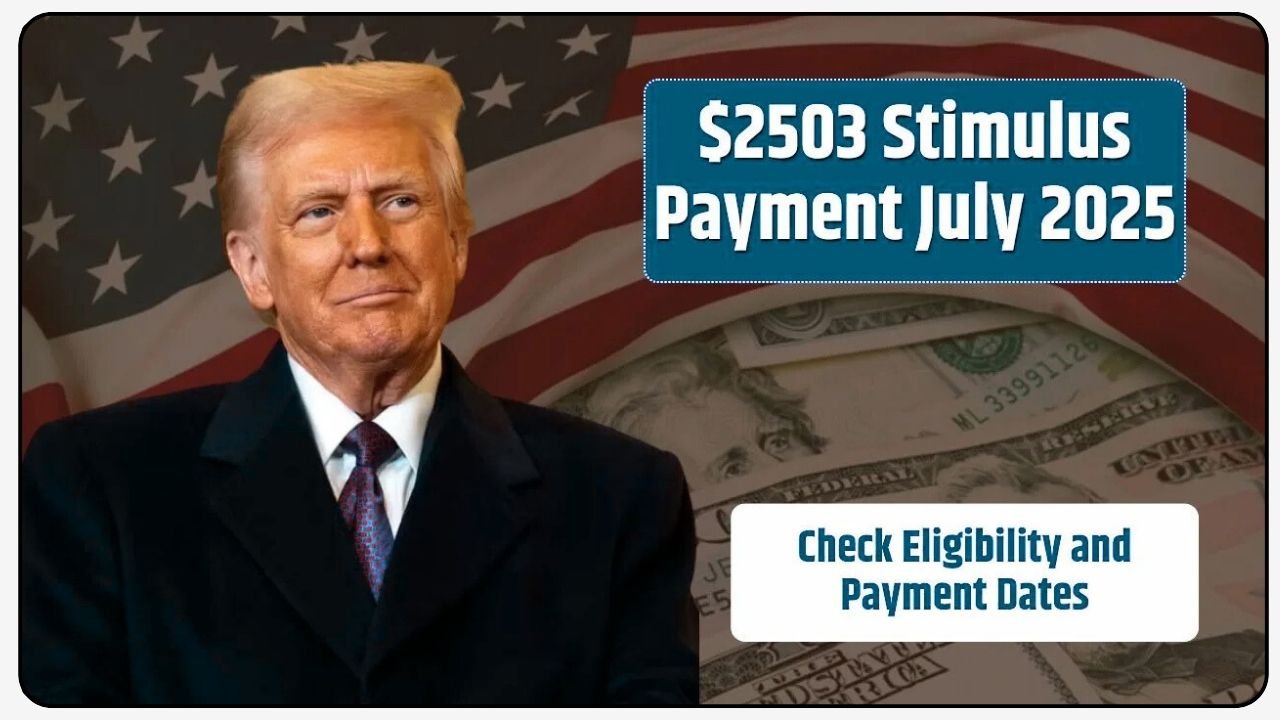Rumors about a $2,503 stimulus check hitting bank accounts in July 2025 have been spreading like wildfire, especially on social media and unverified websites. Many Americans are excited, hoping for extra cash to help with rising costs. But here’s the truth: there’s no evidence of a $2,503 stimulus payment planned for July 2025. Let’s clear up the confusion, look at what’s real, and explore what financial help might actually be available.
Why the $2,503 Rumor Started
The idea of a $2,503 stimulus check seems to have started from online chatter, possibly inspired by past U.S. stimulus payments or international scams targeting people with false promises. During the COVID-19 pandemic, the U.S. government sent out checks of $1,200, $600, and $1,400 to help families. These payments, called Economic Impact Payments, were a big deal, so it’s no surprise people are quick to believe new ones might be coming. But websites like the IRS (irs.gov) and trusted news sources have no mention of a $2,503 payment for 2025. Instead, some of these claims come from unverified blogs or social media posts, often designed to trick people into sharing personal info.
What’s Real: 2021 Recovery Rebate Credit
While a new $2,503 check isn’t happening, the IRS is still sending out payments to some people who missed out on earlier stimulus checks. If you didn’t get the full $1,400 from the 2021 stimulus (part of the American Rescue Plan), you might still claim it through the Recovery Rebate Credit. The catch? You had to file your 2021 tax return by April 15, 2025, to get it. These payments, which could be up to $1,400 per person (plus $1,400 per dependent), are being sent out automatically to eligible taxpayers who missed them earlier. Check your IRS Online Account to see if you’re owed anything.
Other Possible Payments in July 2025
Even though a $2,503 check isn’t real, some states and programs are offering financial help in 2025. For example, California is running a program called Sacramento Family First, giving $725 monthly payments to 200 low-income families until November 2025. Other states, like Oregon and Minnesota, are sending out rebates ranging from $200 to $1,000, depending on income and family size. These are not federal stimulus checks but state-level relief to help with inflation. Check your state’s revenue department website to see if you qualify. There’s also talk of a $2,000 federal stimulus check, but as of July 2025, Congress hasn’t approved it.
| State/Program | Payment Amount | Eligibility |
|---|---|---|
| California (Sacramento Family First) | $725/month | Low-income families, limited to 200 households |
| Oregon | $200–$600 | Low/middle-income residents, based on 2024 taxes |
| Minnesota | Up to $1,000 | Taxpayers, based on income and 2024 filings |
How to Avoid Stimulus Scams
With all the buzz about stimulus checks, scammers are out there trying to trick people. They might send texts, emails, or calls saying you’re eligible for a big payment like $2,503, but they’ll ask for your bank details or a “processing fee.” Legit government programs, like those from the IRS, never ask for money to get money. To stay safe:
- Only trust info from official sites like irs.gov or your state’s government website.
- Never share personal info (like your Social Security number) with unsolicited messages.
- Report suspicious texts or calls to the IRS or your bank.
What to Do If You’re Hoping for Cash
If you’re looking for financial help, focus on real options. File your 2024 taxes on time to qualify for any state or federal relief tied to tax returns. Update your bank info with the IRS to get payments faster. You can also check local programs like SNAP (food assistance) or LIHEAP (energy bill help) for support. For the latest on stimulus or rebates, stick to trusted sources like irs.gov or news outlets like USA Today.
Looking Ahead: Will New Stimulus Checks Happen?
Right now, no new federal stimulus checks are confirmed for 2025. There’s been talk about a “DOGE stimulus check” tied to government savings, but it’s just a proposal with no approval. Economists say new checks would need Congress to agree, which is tough with concerns about inflation and debt. For now, keep an eye on official IRS updates and your state’s programs for any real financial help. Don’t fall for the $2,503 rumor—it’s not happening.
